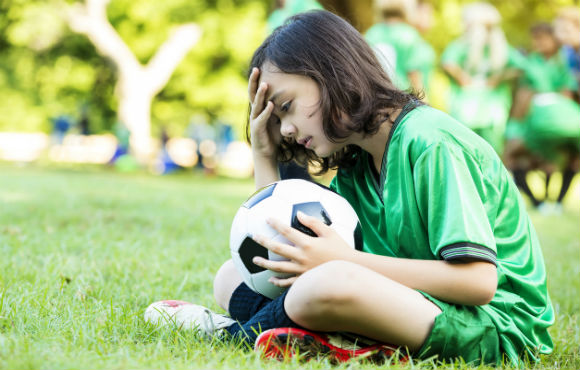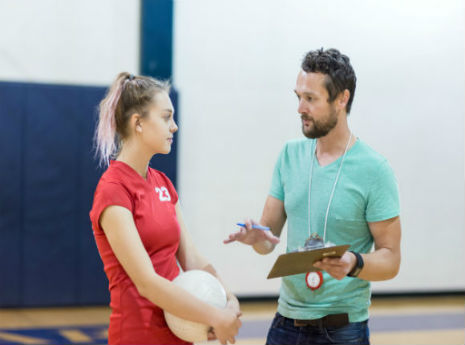Being overly emotional can hinder a young athlete's performance. Here are a few mental strategies that can help young athletes keep their cool in order to focus on playing their best and having a great time.
It's Not About Perfection
1 of 5
First, if you can understand what's behind a young player's emotions, you'll be better equipped to respond and help them play with more confidence and composure.
Children who get emotional during games are usually perfectionists, which can be both good and bad. Perfectionists have a strong work ethic, they're committed to their goals and they want to learn and improve. Coaches can count on these kids to show up and give their all. The downside to perfectionism, however, is that is can come with unrealistic expectations. Because of this, players tend to get angry if they make a mistake.
It's often difficult for perfectionists to make the most of their talents. They're driven by fear--the fear of failing. When they worry or try to avoid making mistakes, they can't play with the freedom that's required to learn, feel confident and improve. As parents and coaches, we can help teach kids that making mistakes is a part of learning and growing.
Set Realistic Goals
2 of 5
When kids have lofty goals, such as making every shot or winning every game, they set themselves up for failure. Instead, help your kids set attainable short-term goals. Encourage them to focus on simple tasks that they can accomplish often, which will help them build confidence. Short-term goals help athletes focus on execution instead of results.
Learn to Let Go
3 of 5
Ultimately, we want young athletes to try to let go of things that are beyond their control-- especially the things that trigger frustration. It's important to identify personal triggers, because two athletes can react differently to the same scenario.
For example, a bad call might upset one athlete, while another might simply let it go and focus on the next play. Once again, we have to look beneath the behavior for the underlying cause, which is generally related to beliefs and expectations. When an athlete gets upset about an individual call or play, they most likely believe that this single circumstance will affect the entire outcome of the game. The player who remains calm, however, realizes that he can't control a bad call or shot, and he can let it go and continue playing.
Mistakes Are Opportunities
4 of 5
As a parent or coach, how can you help your kids learn to accept mistakes so that they don't become frustrated, shut down or throw tantrums during games?
First, teach young players that making mistakes is an inevitable part of sports. Second, help them understand that, as human beings, we're prone to errors–we're not perfect. Third, encourage them to see mistakes and adversity as opportunities to improve. Nobody ever learned to walk without falling down first; encourage progress over perfection.







Discuss This Article